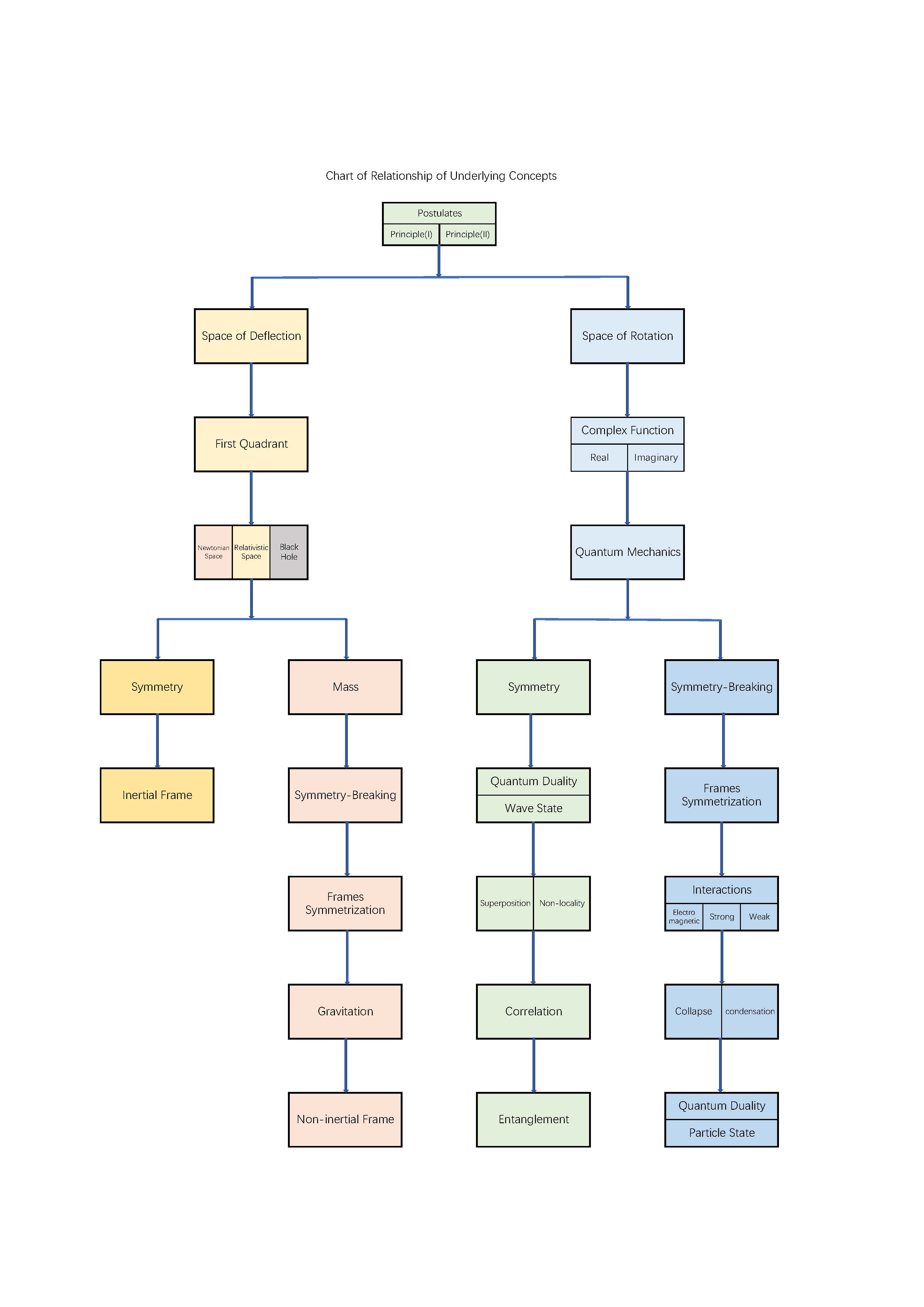: You guys stop now. Before we get into philosophical issues, I'd like to show you a Chart of Relationship of Underlying Concepts, which is a summary of our conversation for new concepts. Please note that this is only a schematic chart, not an exact logical or causal chart.
: Let's talk about why the research method in Silong's paper is so simple that it's hard to accept at first glance?
: From historical review of physics, Silong’s paper introduces an attempt to discover a unifying principle that underlies and underpins both relativity and quantum mechanics without contradiction or paradox, but which is based purely on the need for simplicity and symmetry in the paper. Although being preliminary, this approach is worth reviewing both from a point of view of the physics it entails as well as the philosophic principles it is based on. However, there is very little literature devoted to understanding theories such as this and reviewing in depth them.
: That's right. Doing so will help physicists understand all the paths that have been taken in the search for a unified principle. This paper therefore fills that gap by exploring an overlooked approach to unification that touches on our fundamental human desire to make physics, the universe and our existence easily understandable, and on the willingness of ordinary people to be able to participate in the discussion.
The biggest thing I learned from our conversation was that I couldn't believe how relaxed and casual we seemed when talking about the fundamental principles that govern the world, not at all like we were discussing something big. It turns out that the essence of the world is much simpler than we always thought.
: Our knowledge, understanding and interpretation of the world or universe all come from our existing experiences. Pure science is expressed in the language, words and formulae that describe the common parts of our experiences, and this description must fit our brain structure and underlying cognitive logic. What governs the order of the universe must be simple and compatible with human nature, and this is a belief that human beings can never give up.
: The fundamental principles of physics are also the fundamental points of philosophical theories. The demand for simplicity and symmetry in their theoretical foundations comes not only from the instinctive logic of human thought and cognition, but also from the very essence of nature. Most scientists and philosophers still believe that the principles governing the operation and evolution of the universe must be simple and self-explanatory. The simplicity of Silong's theory has given people a new methodological inspiration. It touches the deepest part of our minds in understanding the world.
: Yes, the work of scientists and philosophers is to try to explain things and laws as simply as possible, not the other way around. The biggest advantage of Silong’s theory is that science and engineering students can basically understand and discuss it, which is a great thing. I am wondering if the two principles of Silong's theory are so simple that I can't think of any simpler principles underlying them in the future.
When my sister was at college in Canada, the physics teacher used to send Silong's paper to the students along with the assignments, asking them to prepare answers and discussions.
: A good theory should be simple and logical, not complex and jerky. For a long time it was widely believed that the less people understood scientific research, the more advanced it was, and that they despised simple interpretations.
I found a paradox, some say, dismissively, that Silong’s theory is too simple and some others find it difficult to understand Silong’s theory. Is it simple or profound? That's the contradiction.
: This is also true because simple and understandable scientific research is long gone. It seems that such research will never be found. The exciting days of frequent new discoveries in the fundamental theories of physics have been far away.
: By the way, when we were in school, our teachers and society encouraged the development of young students' abilities to observe, discover, pioneer, see the world from different perspectives, and take risks, but when we grow up, things don't work that way.
Key Words: Underlying Concepts
